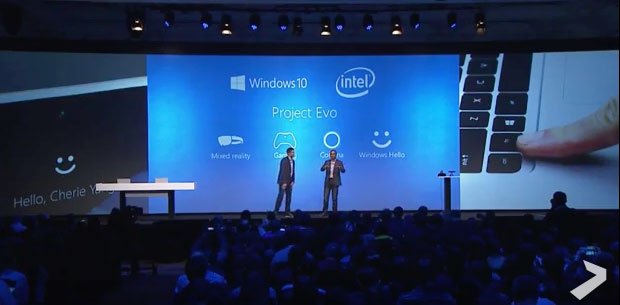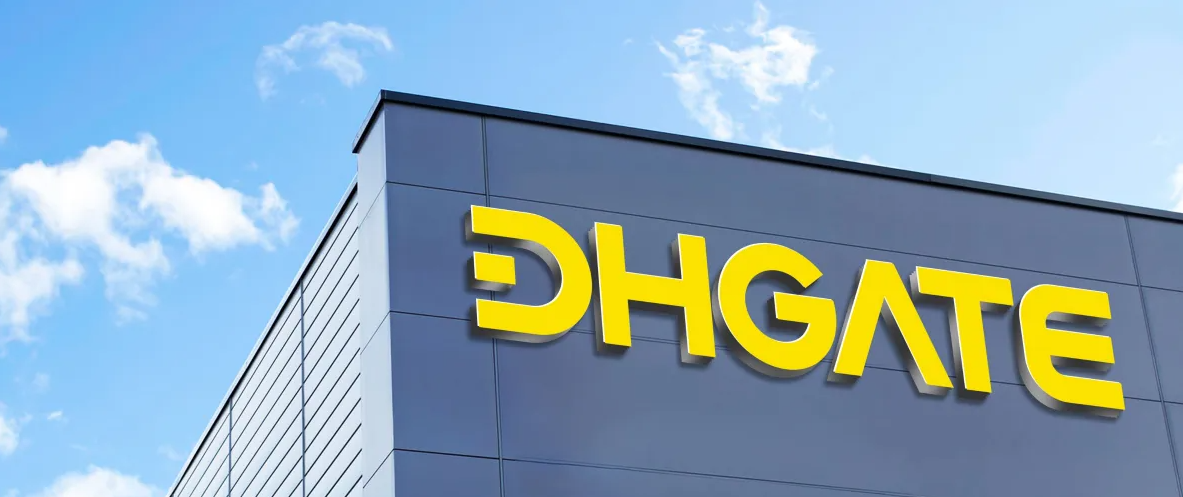
[ad_1]
Microsoft and Intel on Wednesday announced Project Evo, their highly anticipated collaboration to create the next generation of personal computers. The project aims to expand on new advances in artificial intelligence, mixed reality, advanced security and gaming,
Terry Myerson, executive vice president of the Windows and Devices Group at Microsoft, unveiled some of Project Evo’s ambitious plans at the Windows Hardware Engineering Community (WinHEC) event in Shenzhen, China.
Through the collaboration, the companies will push the boundaries of a personal computer’s capabilities in the near future, he said. Technologies under development include far-field speech and wake-on-voice enabled through Cortana, biometrics and voice authentication in Windows Hello, spacial audio, and HDR support for gaming.
Project Evo — particularly its expanded use of Cortana — invites comparisons to the digital assistant tools found in Amazon Echo and Google Home, standalone speakers that use Amazon Alexa and Google Assistant respectively. Though their capabilities differ, each uses voice communications to interact with the automated home.
However, Project Evo seems geared toward making the personal computer into a much more sophisticated device — one that can be accessed and operated in ways never before seen.
Home Hub Connection?
Essentially, users will be able to wake up a PC, whether it’s open or shut, simply by saying “Hello Cortana.” Through voice commands, users will be able to access the information they need either directly from their personal computing device or from the cloud.
“This is going to make the PC way more intuitive than it is today,” Intel SVP Navin Shenoy, general manager of the Client Computing Group, told WinHEC attendees. “You no longer need to be directly in front of your PC to activate Cortana.”
“There are certainly aspects of Project Evo that are likely to compete directly with Amazon Alexa and Google Home,” noted Charles King, principal analyst at Pund-IT.
However, it’s likely that “Intel and Microsoft are after a fundamentally bigger game,” he told TechNewsWorld.
In the case of Project Evo, the companies are working with much more powerful computing capabilities than Amazon and Google are using with their home hubs.
“Microsoft has the technology in the cloud, not the home,” noted Jim McGregor, principal analyst at Tirias Research.
“The problem is that the PC is not the center of the home or the consumer experience,” he told TechNewsWorld.
While there is room for improving the PC experience, this project is not going to push Microsoft into a direct competition with Amazon, McGregor said.
Passwords Passe
The Project Evo collaboration will provide advanced security to the PC, including biometric authentication using Windows Hello, eliminating the requirement to memorize multiple passwords, Shenoy said.
A major aspect of the collaboration is to provide mixed reality experiences in PCs that are affordable to the average consumer, and also to use head-mounted displays that blend the physical and virtual world in ways not seen before.
Microsoft has submitted its HoloLens to the Chinese government for approval, Myerson announced at WinHEC, and the company expects to make the devices available to developers and commercial customers during the first half of 2017.
New Reality
Together with Intel, Microsoft also shared specifications for PCs that can support headsets capable of mixed reality. New head-mounted displays from Acer, Asus, Dell, HMD and Lenovo are expected in 2017. 3Glasses, the leading HMD hardware developer in China, will make its Blubur S1 headset ready for Windows 10 by the first half of 2017, reaching more than 5 million active monthly customers in that market.
HMD Developers Kits will be made available next year at the Game Developer’s Conference in San Francisco.
Microsoft and Intel also are working on ways to make PCs more capable in terms of gaming, as Intel’s 7th Gen Core Processors allow for immersive gaming experiences such as 4K gaming, high dynamic range video, the ability to broadcast real-time competition, and connecting the Xbox controller to the PC.
Project Evo will open mixed reality to a wider segment of the PC owner base at an affordable price point, said Lewis Ward, research director for gaming and VR/AR at IDC.
However, “you generally get what you pay for” in terms of the speed and processing capability for the competitive gaming audience, he warned.
“Intel is moving up the GPU ladder for sure, and Evo is the next logical step for them,” Ward told TechNewsWorld, “but they’re still not ready to compete with AMD and Nvidia at the high end of the GPU market, which is where a lot of hardcore PC gamers in particular tend to cluster.”
[ad_2]
Source link







